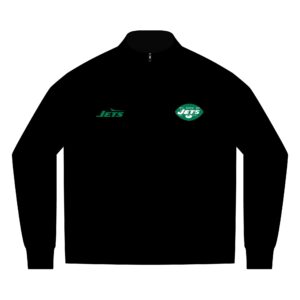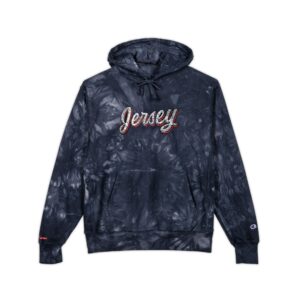- Explore New Jersey
- Events
- Art & Culture
- Cutting Edge
- Lifestyle
- Politics
- Sports
- Entertainment
- Food & Beverage
- Shopping
- Sunset
- Explore New Jersey
- Events
- Art & Culture
- Cutting Edge
- Lifestyle
- Politics
- Sports
- Entertainment
- Food & Beverage
- Shopping
- Sunset
-

New York Giants Men’s Linear Texture Quarter-Zip (Embroidery)
$94.98 – $109.98Price range: $94.98 through $109.98 Select options This product has multiple variants. The options may be chosen on the product page -

New York Jets Men’s Linear Texture Quarter-Zip (Embroidery)
$94.98 – $109.98Price range: $94.98 through $109.98 Select options This product has multiple variants. The options may be chosen on the product page -

New Jersey Devils Champion T-Shirt
$36.12 – $49.98Price range: $36.12 through $49.98 Select options This product has multiple variants. The options may be chosen on the product page -

New Jersey Devils Unisex Champion Tie-Dye Hoodie (Embroidery)
$149.98 – $154.98Price range: $149.98 through $154.98 Select options This product has multiple variants. The options may be chosen on the product page -

New Jersey Devils Unisex Champion Tie-Dye Hoodie (Embroidery)
$149.98 – $154.98Price range: $149.98 through $154.98 Select options This product has multiple variants. The options may be chosen on the product page -

New Jersey Devils Champion Unisex Packable Anorak Jacket
$74.28 – $84.98Price range: $74.28 through $84.98 Select options This product has multiple variants. The options may be chosen on the product page -

New Jersey Devils Champion Women’s Heritage Cropped T-Shirt
$44.77 – $54.98Price range: $44.77 through $54.98 Select options This product has multiple variants. The options may be chosen on the product page -

New Jersey Devils Champion Women’s Heritage Cropped T-Shirt
$44.77 – $54.98Price range: $44.77 through $54.98 Select options This product has multiple variants. The options may be chosen on the product page
Explore New Jersey
Explore New Jersey
Your source for everything happening in the Garden State. Enjoy live music year-round, skiing, hiking, beaches, rivers, and mountains. Explore New Jersey’s wine scene by visiting top wineries and vineyards offering award-winning wines. Check out reviews and photos of the best places to sip and sample. Love beer? Discover New Jersey’s breweries — currently home to 123 licensed breweries — and explore the highest-rated beers brewed in the state.
Music
A Night of Smooth Jazz and Soul: Alex Bugnon Takes the Stage at the Morris Museum Tomorrow Night
New Jersey’s vibrant live-music scene gets a major lift...
Cherry Hill Police Search for Answers After Shooting Inside Local Recording Studio
Cherry Hill authorities are investigating a non-fatal shooting that...
Steve Earle Brings His Life Story to Montclair — Though He Forgot about About Me and His Initial MCA Recording Deal
Thats a Joke of course but when Steve Earle...
Politics
Mikie Sherrill Steps Down from Congress as New Jersey Prepares for a New Era in State Leadership
New Jersey’s political landscape shifted sharply late Thursday night...
A Tale of Two Celebrations: New Jersey’s Political Divide on Display After November Elections
Two blocks apart in downtown New Jersey, two very...
Controversy Over ICE Tactics in New Jersey Sparks Questions About Civil Rights
A recent video capturing masked officers at a Burlington...
Sports
Jersey Shore BlueClaws Unveil the Liberty Bucket, a New Era of Shore Baseball Identity
A bold new symbol is making its way to...
BlueClaws Open Nominations for 2026 Military Appreciation Night as New Jersey Fans Rally Behind Local Heroes, Exclusive Jersey Auction and Support Homeless Youth Through...
The Jersey Shore BlueClaws are once again honoring the...
New Jersey Stars Shine in 2025 World Series as Dodgers Face Blue Jays
The 2025 World Series promises to be a historic...
© 2025 Explore New Jersey, a Sunset Entertainment & Media Company | 1928 The Woods II - Cherry Hill, New Jersey 08003. All Rights Reserved.

